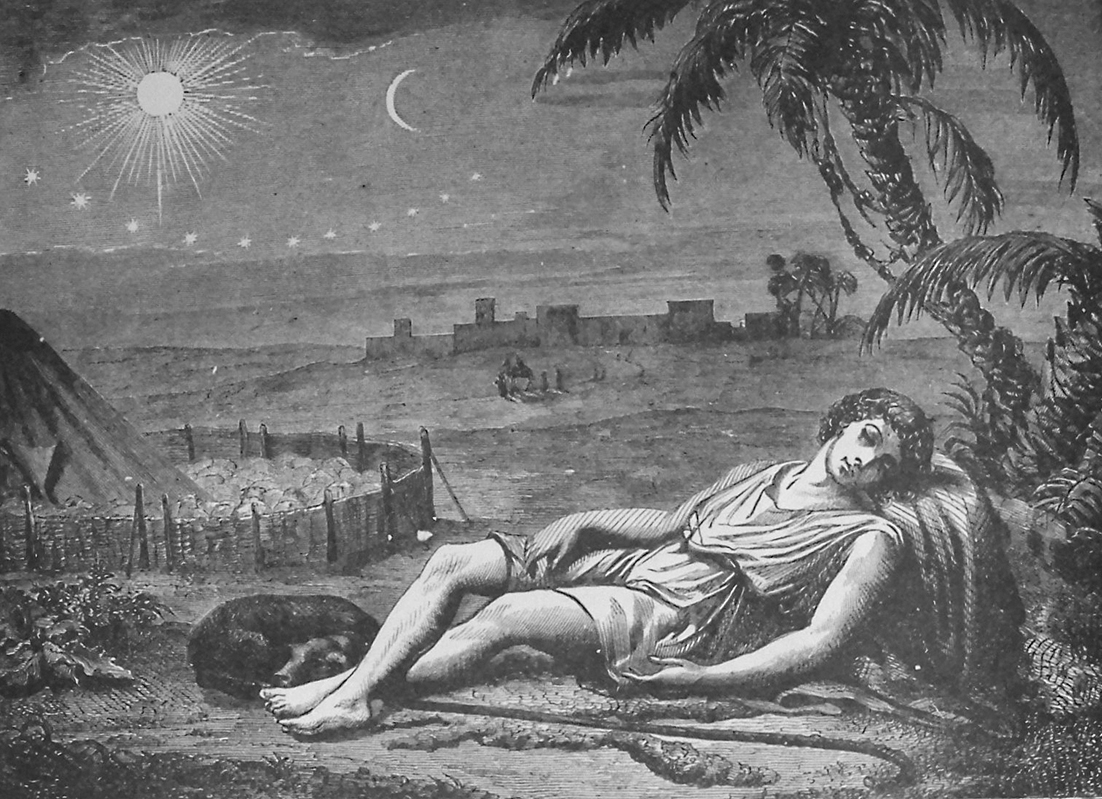Sun or moon?

Judaism’s Worldview Series
Jewish Family Education with Candace R. Kwiatek, The Dayton Jewish Observer
Nearly 2,000 years ago, the Talmudic sages taught: “When the sun is eclipsed it is a bad omen for the entire world. The Gemara (commentary) tells a parable. To what is this matter comparable? To a king of flesh and blood who prepared a feast for his servants and placed a lantern before them to illuminate the hall. He became angry at them and said to his servant: Take the lantern from before them and seat them in darkness.”
Simply put, God prepares and sets before humans all manner of good things, illuminated by the sun for their pleasure.
But seeing their lack of consideration for such riches (and perhaps even for one another), God becomes angry and orders the moon to obscure the sun, taking away its light and casting humans into darkness, a portent of Divine retribution.
“Jewish tradition has long been accepting of the basic scientific explanations for the rules of the cosmos,” writes Forward Contributing Editor Seth Rogovoy, including the natural event of an eclipse. At the same time, Jewish scholars, commentators, and laypersons throughout the centuries have discerned in Creation’s orderly design spiritual significance and insights as to how one might best live.
The sun and moon figure prominently in the Jewish worldview. Rather than deities, as in most ancient cultures, the sun and moon are described in the biblical narrative as God’s handiwork designed to separate day from night, serve as signs for set times in the days and years, and function as lights.
And so, in Jewish life, the regular setting and rising of the sun across the seasons and throughout the years determines when a new day begins, informs the set times for daily prayer, and establishes the lighting times for Shabbat and festival candles.
This solar calendar provides constancy and stability, reflected in the Hebrew shanah, year, and its cognate shinun, repetition.
Gratitude to God for the gift of the sun is acknowledged in each day’s morning prayers, “Blessed are You…(Who) illuminates the earth (and) renews every day the work of Creation.”
The sun’s not-inconsequential roles in Jewish life are maintaining consistent ritual timing and fostering gratitude by calling attention to the wonders of Creation.
Shakespeare’s “inconstant moon,” however, plays the greater role in Jewish identity, life, and teaching, beginning with the first commandment given to the Israelite slaves just prior to the Exodus: “This month (Aviv/spring)…shall be the first of the months of the year for you.”

The resulting calendar guided by the irregular moon embodied the ongoing Jewish experience of impermanence and uncertainty, but it also implied notions of individuality, adaptability, and self-determination, reflected in the Hebrew words chodesh, month, and chadash, new.
For the Hebrew slaves, long indoctrinated into a sun-god mindset of repetition and regimentation, taking control of one’s own time and defining its purpose would have been revolutionary, liberating, and exhilarating notions.
Naming each new month, celebrating its first day—Rosh Chodesh — and offering a blessing for the moon’s renewal at the Kiddush Levana ceremony have long acknowledged the centrality of the moon in Jewish life.
Eventually, by adding leap months to synchronize the shorter lunar calendar with the solar one, the unified lunisolar Jewish calendar emerged, creating a valued unity between constancy and novelty.
The moon, which can only reflect light, is an ever-present symbol of the Jewish people. Its task is to reflect the light of the sun, God, and Torah into the world. Be a light by reflecting the light.
The king and the cottage. An elderly king had to determine which of his three children, whom he loved equally, would eventually reign. One day, he announced, “Whoever can fill the garden cottage to capacity within seven days with anything you choose will earn the throne.”
The oldest child lugged rocks of all shapes and sizes for days, filling the cottage’s cracks and crevices with small pebbles. At the end of the week, the king nodded. “You may be the next king.” The king ordered the cottage emptied.
The middle son took his turn, filling the cottage with feathers and tamping them down until it was crammed full. At the end of the week, the king nodded. “You have surpassed your brother. You may be the next king.”
The cottage was again emptied.
When the youngest child’s turn came, the brothers pleaded with their father to not let her compete or at least wait until she was older. The king refused, saying, “You’ll each have a turn.”
The first day passed, but the cottage remained empty. A second day passed, and a third. The king waited. On the seventh day, just as the king opened the cottage door, the young princess slipped in and knelt in the middle of the room, facing away from the door.
Moments later, she rose, a candlestick standing on the floor, its flickering candle soon filling the entire cottage with light. The king smiled and said, “The throne is yours.”
The darkness of a total solar eclipse is a powerful Torah lesson. Because the sun is about 400 times larger than the moon, it’s only from our perspective that the moon appears to cover the sun. But the sun’s fiery-white corona is still visible, reminding us that even in dark moments, the Divine Light isn’t extinguished, and we can still reflect it outward.
Literature to share
The Sages of Chelm and the Moon by Shlomo Abas. The people of Chelm — known as the city of wise fools — have a problem. Every so often they find themselves stumbling in the dark when the moon disappears from the night sky. So they set out to purchase a brand-new full moon to illuminate their dark skies year round. But their plan goes awry when a crafty innkeeper offers them a seemingly perfect solution. With comical illustrations and engaging text, this clever adaptation of a well-known tale is perfect for the elementary set.
Israel 201 by Joel Chasnoff and Benji Lovitt. Did you know that there are more than 5,000 stray cats in Jerusalem…per square mile? Explore 75 new aspects of Israeli life and culture today, from the Olympics to the music scene, real estate, show business, the arts, women’s rights, and more. Based on the authors’ own experiences, this book celebrates the Israel you probably don’t know, behind the headlines.
To read the complete May 2024 Dayton Jewish Observer, click here.


